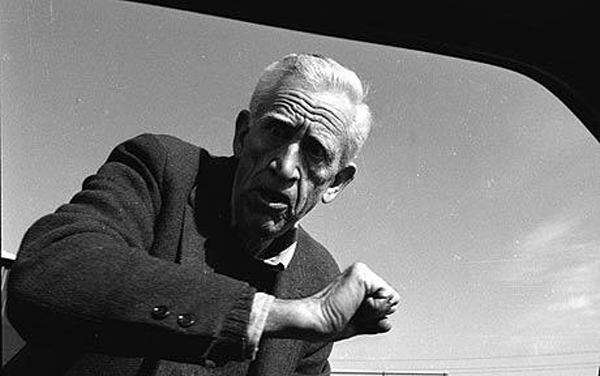
just how much could it have hurt?
I know I'm one of the publishers, and so it may not be quite proper for me to sing the praises of the online arts magazine Barry and I introduced late last summer, but I'm going to risk it anyway.
Although so much else of IDIOM is just as good or even better, because of its particular timeliness and its unexpected format I wanted the conversation between some of the publication's writers, "On the passing of J.D. Salinger", which we published yesterday, to get more attention than it might otherwise attract.
So consider this a flag.
The spirited short piece is nothing like the fulsome academic discourse available almost everywhere this week, and you'll feel like you're sitting in the room with the three young participants - even contributing to the conversation. The voices you'll hear are those of Alice Gregory, Editor Stephen Squibb and Jessica Loudis.
While you're at the site, take a look at the latest posting, which is equally timely, "Art and Culture in Haiti after the Quake", by Hong-An Truong, and browse through the still-modest-size archives.
My own two cents about Salinger's "The Catcher in the Rye" is the thought which came to me almost immediately after hearing about Salinger's death: I don't mean to minimize the importance of what he accomplished back in 1951, but, as a gay boy the year it was written, and a gay young man when I finally read it, "Catcher" never quite resonated with me in the same way it did with others. It seems to have attached itself to the psyche of many of my approximate contemporaries, or at least the straight, male, white, middle to upper class types.
Today I'm no longer gay; I think of myself as totally queer instead, but I can remember what it was like when being gay meant dissemblance, invisibility, powerlessness, desperation and, for "practicing" Catholics, eternal damnation. I'm now more than cool with my orientation, in fact I consider it a strength in almost every way, and I'm definitely no longer totally alone with it. So maybe I should try once again to make Holden Caulfield's acquaintance: His own much-analyzed disconnect looked pretty trifling to me at a time when the the whole world despised my, literally, unspeakable differentness and when I would have been crushed in an instant had I revealed myself.
This last thought can only serve as a footnote, and I don't want to make too much of a purely personal irony, but I can't help noting that, at roughly the same time I began emerging from a closet to which I had been condemned by others, J.D. Salinger shut himself up in one of his own construction. It's his odyssey that still baffles everyone.